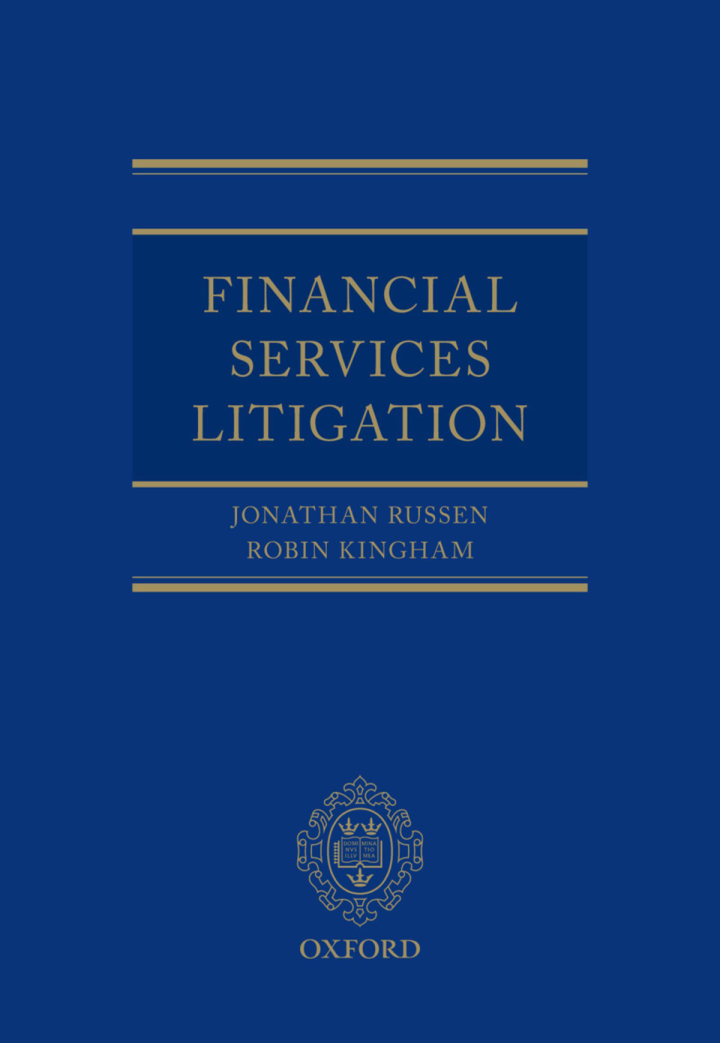“Antimonopoly and American Democracy
1st Edition” has been added to your cart. Continue shopping
Financial Services Litigation 1st Edition
$97.50
Attention: This is just ebook, Access Codes or any other Supplements excluded! / File Delivery: Sent Via Email within 24 hours!
SKU: e15329def61e
Category: Law Textbooks
Description
-
Author(s)HHJ Jonathan Russen QC; Robin Kingham
-
PublisherOUP Oxford
-
FormatPDF
-
Print ISBN
9780198846512, 0198846517 -
eText ISBN
9780198846512, 0198846517 -
Edition1st
-
Copyright
- Details
This book primarily provides assistance to litigators who find themselves acting for or against firms in contentious regulatory matters. The material covered is broad in that it covers matters of civil, criminal, administrative, and public law. It is also highly focused in that it is intended to act as a practical handbook for litigators; detailed explanations are given of practice, procedure, evidence, and remedies at the expense of general commentary on the non-contentious aspects of financial regulation. The book starts with two chapters that are primarily contextual. Chapter 1 provides an overview of the UK financial regulators whilst paying particular attention to the relationships between them and the ways in which those interactions can pose problems for litigators and the firms they represent. Chapter 2 summarises the authorisation process and its procedures, as well as the Senior Managers and Certification Regime. In both cases, it provides practical advice for firms and individuals in composing and submitting applications for authorisation and approval. Chapter 3 deals with the increasingly important topic of investigations and information gathering. It pays particular attention to the settlement of investigations and the FCA’s procedures for determining discounts. The heart of this book is found in Chapters 4-7, which cover the various forums in which firms can be challenged for failing to adhere to regulatory standards. Unlike many works dealing with financial services regulation, which so often seem to focus on civil liability, this book aspires to be equally helpful to the criminal litigator. Criminal liability is therefore split in two. Chapter 4 covers practice, procedure, and evidence. Chapter 5 covers the substantive offences, defences, and sentencing. Civil liability is found in Chapters 6 and 7. Civil enforcement action taken by regulators, including RDC procedure, penalties, and an analysis of the basis and scope of the raft of potential remedies available to the regulator, are covered in Chapter 6. Individual action by investors and consumers is considered in Chapter 7 alongside wider legal principles that may come into play such as litigation. This chapter for the first time includes a detailed analysis of the types of claims often encountered by firms, including case studies on PPI and interest rate hedging products. Redress, complaints, the Financial Ombudsman Service, and relevant procedure are analysed in Chapter 8. Finally, Chapter 9 provides an overview of the independent methods of challenging regulators, including judicial review and the Financial Services Complaints Commissioner.
Related products
-

Anti-Discrimination Law in Civil Law Jurisdictions 1st Edition
Rated 0 out of 5$43.88 Add to cart -

Commercial Arbitration in Sweden 3rd Edition
Rated 0 out of 5$146.25 Add to cart -

Constitutional Adjudication in Africa 1st Edition
Rated 0 out of 5$45.50 Add to cart -

Civil Wrongs and Justice in Private Law 1st Edition
Rated 0 out of 5$43.88 Add to cart


